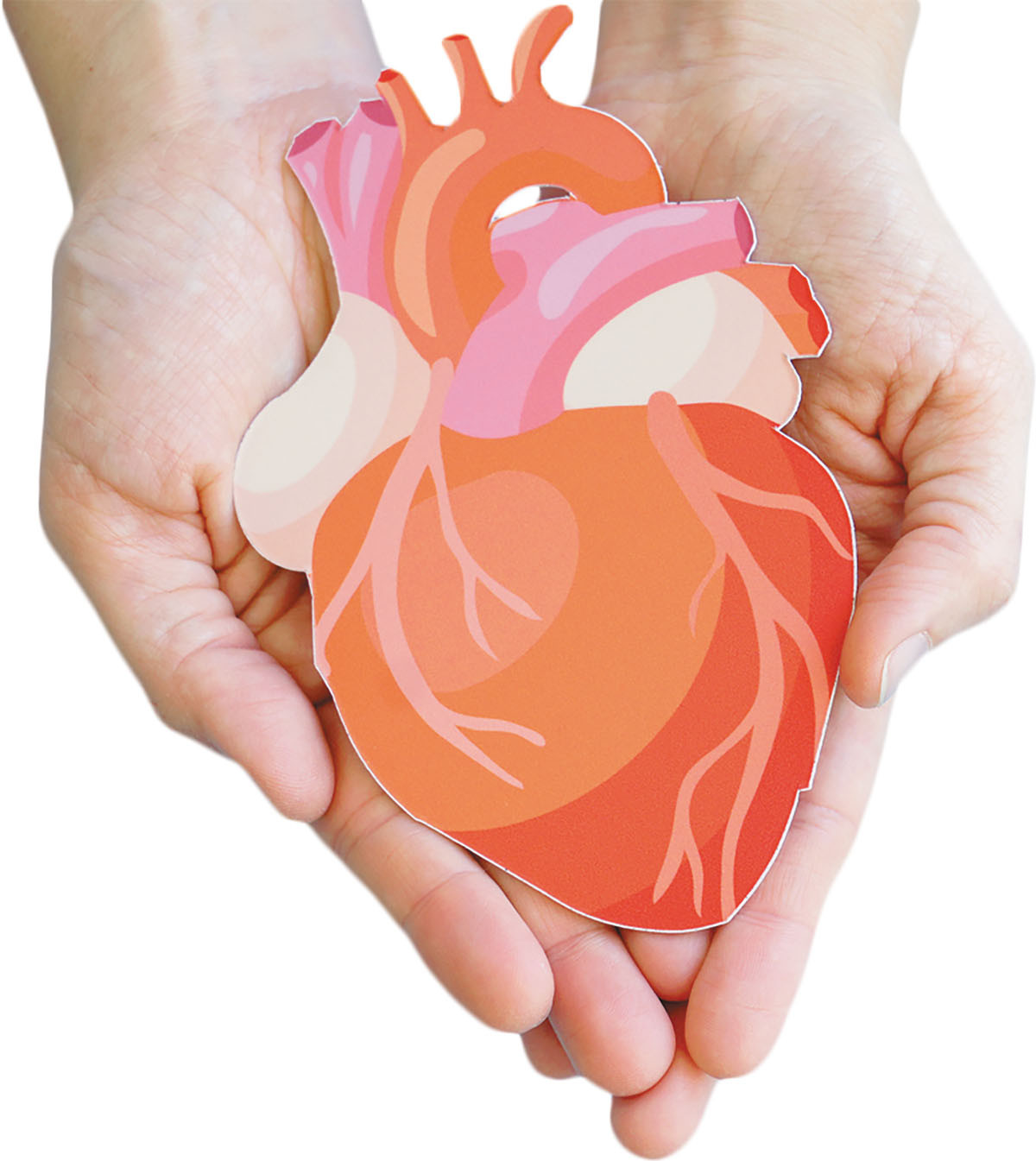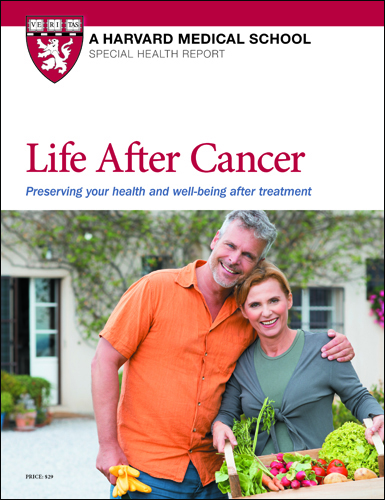When cancer treatment affects the heart
The growing field of cardio-oncology strives to help people with cancer protect their cardiovascular health.
- Reviewed by Deepak L. Bhatt, M.D., M.P.H, Former Editor in Chief, Harvard Heart Letter
 The number of cancer survivors in the United States now exceeds 18 million — a record-breaking number that's expected to keep rising over time. This positive trend stems mainly from the earlier detection of many types of cancer coupled with more effective treatments.
The number of cancer survivors in the United States now exceeds 18 million — a record-breaking number that's expected to keep rising over time. This positive trend stems mainly from the earlier detection of many types of cancer coupled with more effective treatments.
As improved therapies continue to extend lives, people with cancer may be more likely to die of something else, especially heart disease. "Modern cancer treatments often lead to long remissions from cancer," says Dr. Ohad Oren, a cardiology fellow at Harvard-affiliated Massachusetts General Hospital. However, side effects from cancer therapies can affect the heart and blood vessels, possibly causing serious, sometimes life-threatening complications, he says. Broader recognition of these potential problems has increased referrals to cardio-oncology clinics, which focus on preventing and managing cardiovascular problems in people who are undergoing (or have completed) treatment for cancer.
Targeted cancer therapies
The risk of heart problems during or after cancer treatment depends on the type and amount of drugs or radiation you receive and how healthy your heart was before the treatment. Older chemotherapy drugs called anthracyclines are well known to damage the heart. But in recent years, it's become clear that newer, targeted cancer therapies can also affect the cardiovascular system, says Dr. Oren. These drugs specifically target biological factors that underlie cancer. For example, some block signals that enable cancer cells to grow, while others trigger the immune system to destroy cancer cells.
It's tempting to think that these newer drugs target only cancer cells and not normal, healthy cells. Unfortunately, that's not the case, says Dr. Oren. Bevacizumab (Avastin), a drug taken in pill form to treat breast and colon cancer, may lead to high blood pressure in up to one-third of those who take it. It can also raise the risk of blood clots and heart failure, as can certain other drugs that block cancer growth.
About 40% of people with cancer may be eligible for a promising class of drugs known as immune checkpoint inhibitors, such as pembrolizumab (Keytruda) and nivolumab (Opdivo). These therapies are usually well tolerated, but up to 2% of people may develop heart muscle inflammation (myocarditis), says Dr. Oren. While some cases of myocarditis are mild, others can lead to heart rhythm abnormalities or heart failure. Currently, research on other possible heart-related effects from these immunotherapy drugs is a topic of intense investigation, Dr. Oren notes.
Advice for cancer patients
If you're diagnosed with any type of cancer, ask your doctor whether your planned treatment might lead to cardiovascular problems, advises Dr. Oren. This is especially important for people ages 65 and older and anyone with risk factors for heart disease (such as high blood pressure or diabetes), who may want to request a referral to a cardio-oncologist. Potentially helpful heart-protecting strategies include statins, blood pressure drugs, and exercise. In fact, a study published Oct. 18, 2022, in JACC: CardioOncology found that exercise during chemotherapy for cancer is not only safe and helps to improve fitness levels and heart function, but may also relieve some of the side effects of cancer treatment, such as fatigue. Be sure to start slowly and gradually increase your exercise over time with guidance from your oncologist, advises Dr. Oren (see "Exercise precautions for people recovering from cancer").
Exercise precautions for people recovering from cancerBefore you begin to exercise, check with your doctor to make sure it's safe for you to start, and keep the precautions below in mind as you begin a new fitness program. |
|
|
CONDITION OR TREATMENT |
EXERCISE PRECAUTION |
|
Breast cancer |
Avoid exercising your arms and shoulders until your doctor gives you the okay. |
|
Compromised immune system — for example, because of a bone marrow transplant |
Avoid public pools and gyms until your blood cell count returns to normal. |
|
Current radiation treatment |
Avoid the pool, lake, and ocean to prevent bacterial exposure on raw skin. |
|
Indwelling catheter or feeding tube |
Avoid the pool, lake, and ocean to prevent bacterial exposure. |
|
Lymphedema |
Wear a compression garment while you work out. |
|
Nerve damage (neuropathy) |
Exercise in a way that doesn't put you at risk for a fall. For example, pedal a recumbent bicycle rather than walking on a treadmill. |
|
Recent surgery |
Allow time to heal before starting an exercise program. Ask your doctor how long you need to wait. |
|
Severe anemia |
Wait to start exercising until your blood count is back up to normal. |
Source: Harvard Special Health Report Life after Cancer.
Image: © ewcream/Getty Images
About the Author

Julie Corliss, Executive Editor, Harvard Heart Letter
About the Reviewer

Deepak L. Bhatt, M.D., M.P.H, Former Editor in Chief, Harvard Heart Letter
Disclaimer:
As a service to our readers, Harvard Health Publishing provides access to our library of archived content. Please note the date of last review or update on all articles.
No content on this site, regardless of date, should ever be used as a substitute for direct medical advice from your doctor or other qualified clinician.
















